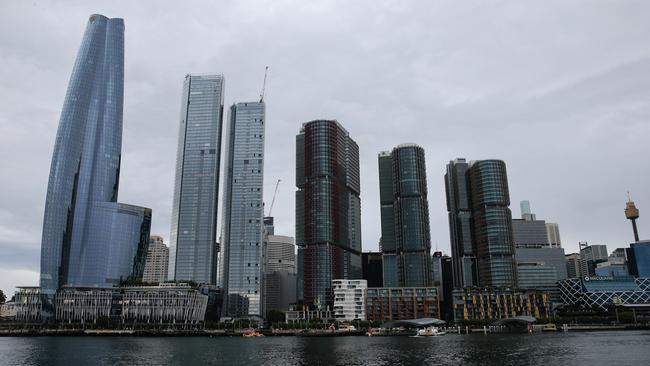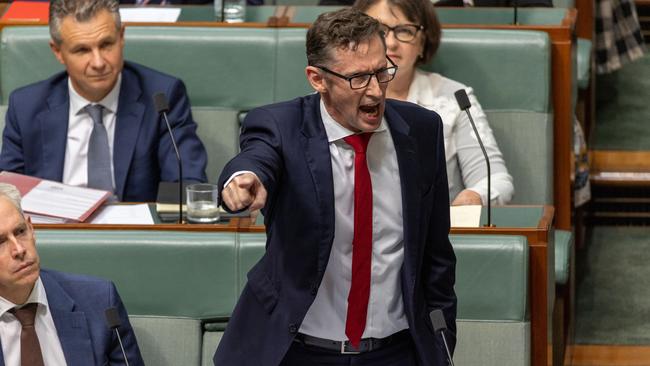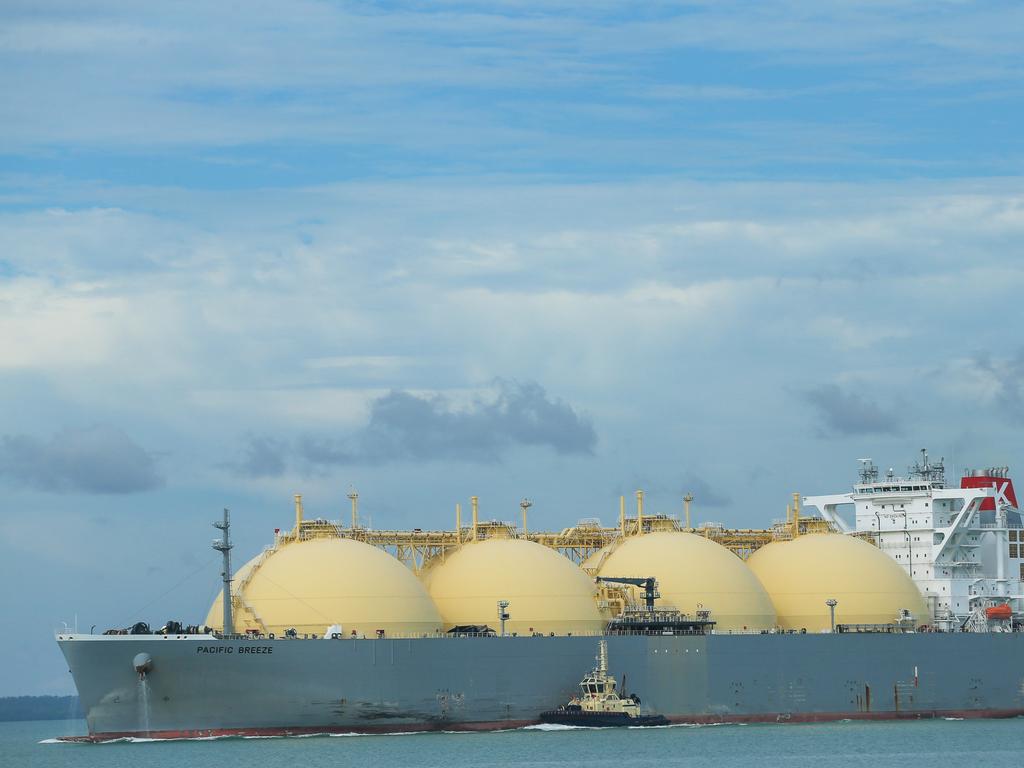Corporate Australia’s $10bn tax battle with the ATO to line government’s budget pockets
Federal budget papers show about $9.7bn could bolster the government’s bottom line thanks to the tax office’s fight to get corporate Australia to pay up.

Business
Don't miss out on the headlines from Business. Followed categories will be added to My News.
The federal government is banking on an even bigger windfall after revealing it expected at least $10bn in potential tax takings from major companies, as disputes reach 15-year highs thanks to a backlog of challenges.
The latest budget papers reveal the government has thrown the Australian Taxation Office further resources as it continues its clamp down on big business tax dodgers, with hopes a further $4.5bn could come from the crackdown.
The ATO is litigating a number of key tax battles, including cases against meat giant JBS and property player Lendlease, with the latest year seeing another 21 key companies attempt to deny new tax claims.
ATO data reveals $2.6bn in returns were disputed in 2023, of which almost $1.7bn came from just 21 key companies.
But the potential budget tax windfall comes in at the low end of ATO estimates for the government’s tax bill, with ATO data showing almost $16bn in returns were being disputed across big and small business at the end of 2023.
The budget tipped $9.7bn of contested tax returns, the highest level reported in recent records, tracking at almost double the levels disclosed in 2020.
The budget figures discount the government’s potential windfall, but still reveal a huge sum of money owed by corporate Australia, reaching its highest level in budget records.
These disputed returns, if resolved, could see the government bank billions in extra tax as well as lock major companies into paying more tax into the future. Past data shows the disputed tax windfall has almost doubled in 2020, with the ATO slugging it out in secret with several multinationals over their tax claims, including Brazilian meat giant JBS and lately construction heavyweight Lendlease.
The budget data shows contested tax liabilities reached a low ebb of $3bn in 2017-18, soon after the introduction of new tax laws, but this has since surged.
Between the 2023 March budget, the last set of accounts presented under the former Coalition government, and the October budget the contested tax take jumped by almost $2.2bn. Tax officials told The Australian the lumpy tax figures reflected the impact of several long-running tax battles between the ATO and major corporations.
Baker McKenzie tax partner Simone Bridges said the rise in contested returns was linked to ATO enforcement in the wake of the introduction of the Diverted Profits Tax in 2017. “It takes a while to come through the system,” she said.
Ms Bridges said the rise also signalled the ATO was becoming more aggressive in pursuing companies over their tax arrangements, in particular transfer pricing. “I think it is the culmination of the (base erosion and profit-shifting tax enforcement) and the tail end of it that’s what I’m seeing,” she said.
The ATO confirmed the blowout in contested tax filings came as a result of a range of dispute resolution processes, as well as a number of litigation matters relating to disputed tax assessments. An ATO spokesman said it could not disclose the details of these disputes “until a court ruling is made and/or an agreement is reached”, saying it was “not possible to estimate with any reliability” the financial impact of its current disputes.
But tax office officials expect the disputed sum to continue climbing, with the ATO now turning its attention to almost 256,400 million privately owned companies and wealthy groups.
ATO data reveals the tax office has engaged with at least 1765 of the largest private companies in Australia, with 161 tax matters referred for dispute after companies opposed attempts to tweak their tax take.
The ATO is now understood to be looking at widening its enforcement efforts in the year ahead, with the government unveiling plans to plough more funds into the tax office in the hope of raising at least another $4.5bn each year from tax.
The latest budget revealed the moves from the government to tweak several tax rules, including the general anti-avoidance provisions, and put in place penalties for companies caught mischaracterising or undervaluing royalty payments.
Assistant Treasurer Stephen Jones said the government was “ensuring taxpayers and businesses operating outside of the tax system do the right thing by paying their fair share of tax”.
“These measures will raise billions of dollars of revenue and ensure taxpayers and businesses operate within the tax system and pay their fair share of tax,” he said.
The extra funding comes as the ATO ratchets up pressure on corporate Australia, with its Tax Avoidance Taskforce, led by second commissioner Jeremy Hirschhorn, pursuing a number of key taxpayers.

In recent weeks the ATO sent construction giant Lendlease a $112m tax bill, in a move expected to see the ASX-listed company’s liabilities balloon to more than $300m.
Lendlease, which was advised by audit and consulting giant PwC on its tax arrangements, is expected to contest the ATO’s amended assessment.
The ATO has also hounded Brazilian meat giant JBS over its tax take, with the company again advised by PwC.
PwC was last year revealed to have misused confidential government briefings to construct new tax strategies for its clients in a bid to front-run new tax laws.

The 2016 introduction of the Multinational Anti Avoidance Laws was intended to end many tax battles between the ATO and corporate Australia, targeting 44 key companies with a view to raising almost $100m a year in tax.
This was supplemented by the 2017 diverted profits tax aimed at squeezing tech companies and corporates offshoring profits.
A number of big companies pay very little tax in Australia.
Facebook, owned by Meta, paid only $42m in tax in Australia last year on almost $1.4bn in revenue. However, this pales in comparison to the estimated $5.1bn Facebook siphons out of Australia, largely thanks to routing sales through its Irish entity.
Originally published as Corporate Australia’s $10bn tax battle with the ATO to line government’s budget pockets





